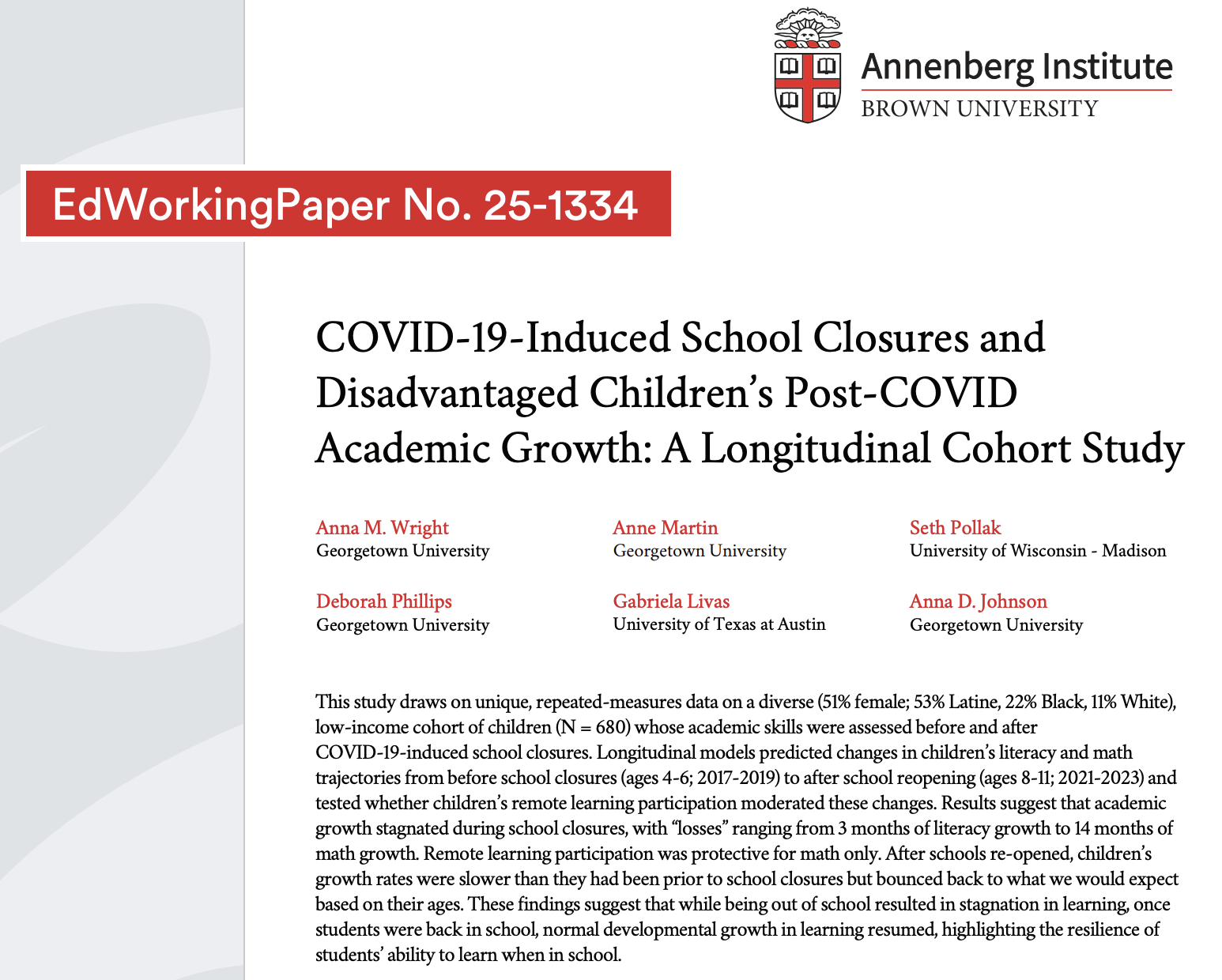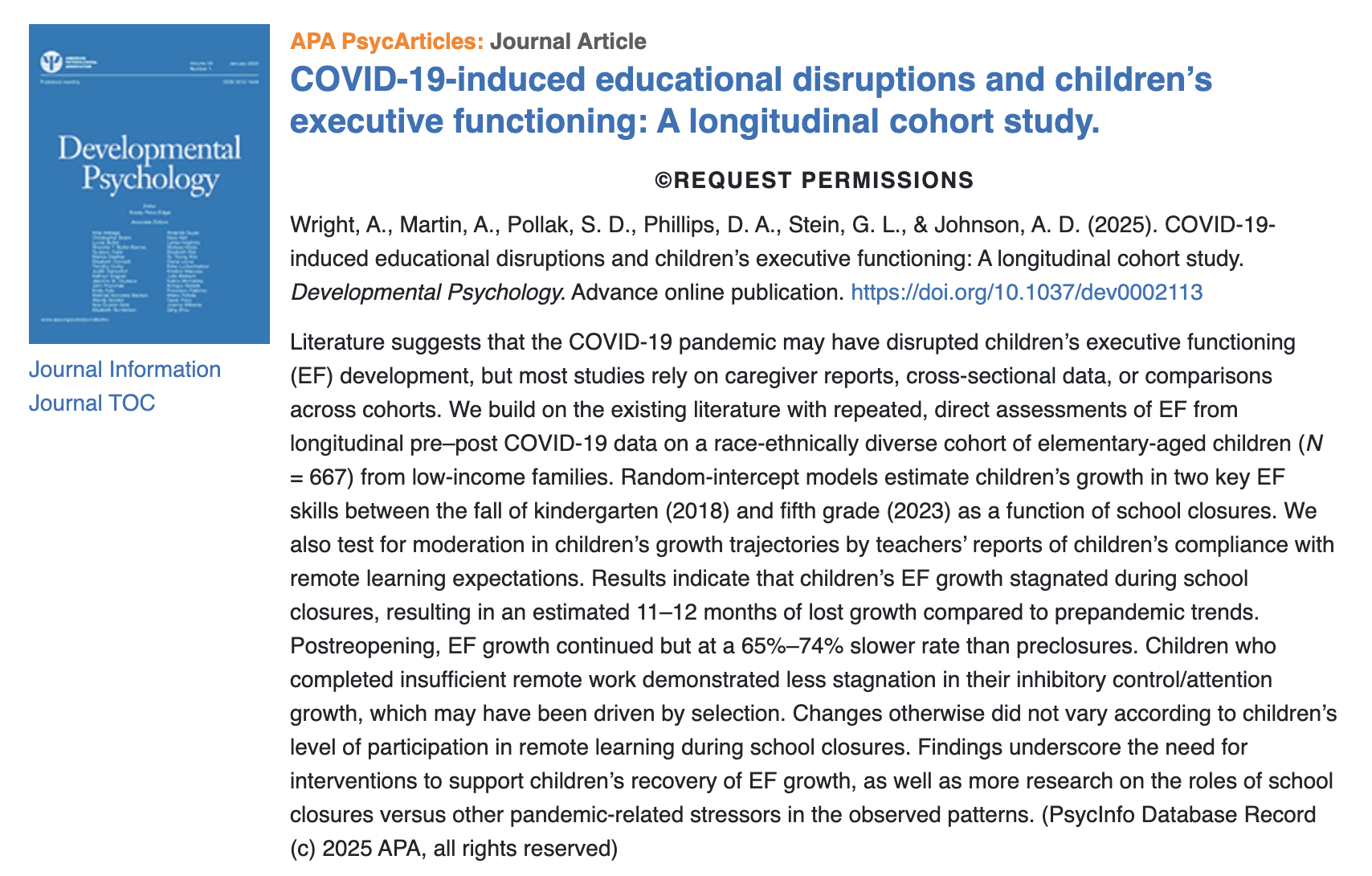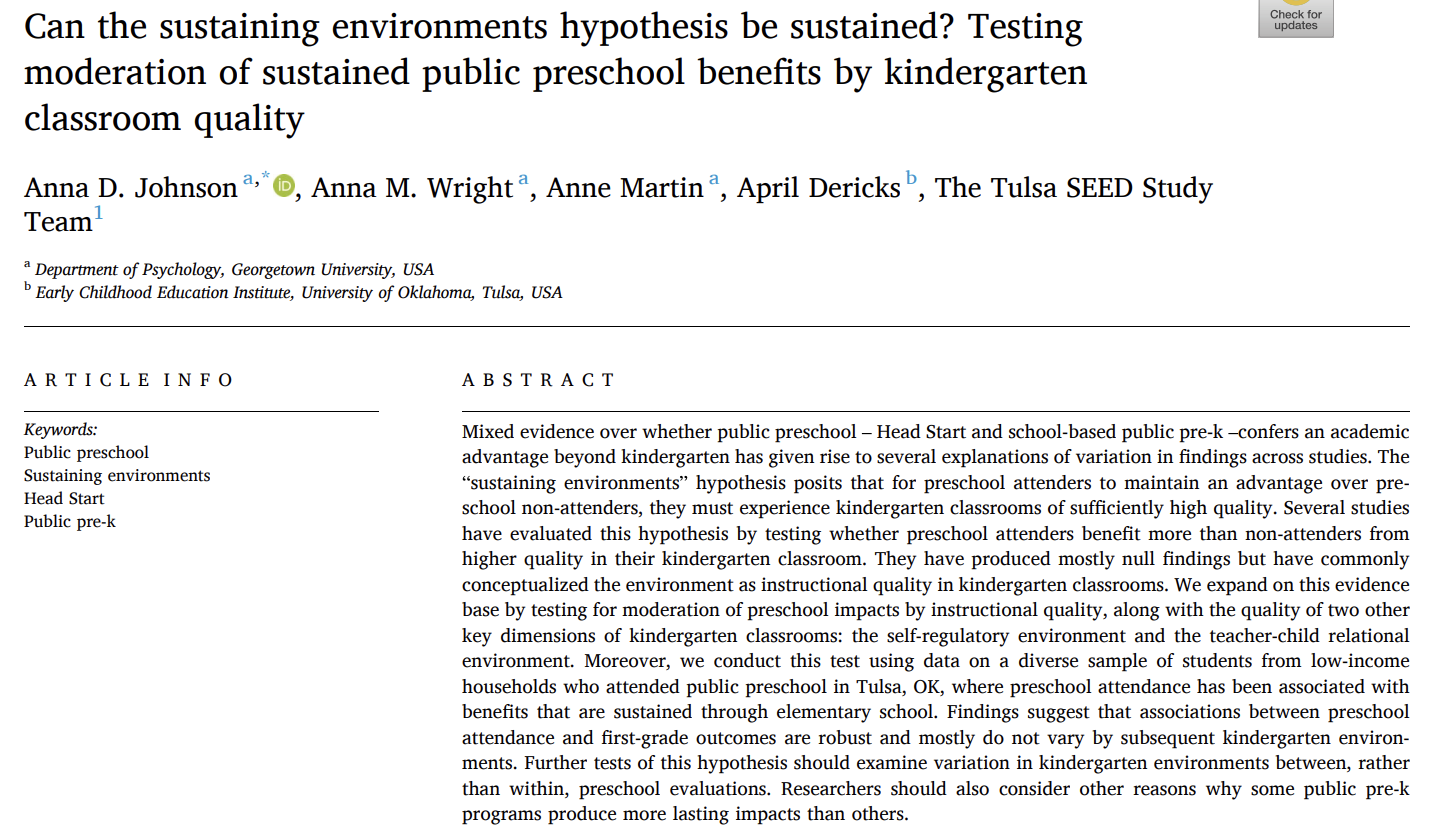
Public Pre-K-12 Education
Active Projects
The Tulsa SEED Study
Funding:
The National Institute of Mental Health (NIMH), 2023-2028
The National Institutes of Health (NIH), 2018-2023, $2,700,000
The Spencer Foundation, 2017-2021, $1,000,000
The George Kaiser Family Foundation, the University Strategic Organization Initiative at the University of Oklahoma, the Foundation for Child Development, 2017-2020, $225,0000
The Heising-Simons Foundation, 2016-2020, $1.1 million
The Tulsa SEED (School Experiences and Early Development) Study is among the nation’s most comprehensive evaluations of public pre-kindergarten. Tulsa SEED has followed a sample of low-income children in publicly-funded pre-k in Tulsa, OK, beginning when children were 3-years-old (2016) and continuing through 9th grade (2028). The study aims to understand the effects of pre-k – administered in a mix of public and charter school-based pre-k classrooms and Head Start and Educare classrooms – on children’s self-regulatory, education, and health outcomes. To accomplish this goal, Tulsa SEED collects comprehensive data, including direct assessments of children’s skills in the fall and spring of each year, teacher and observer reports of child behavior, surveys of children’s parents and teachers, in-depth classroom observations of teacher-child and peer-to-peer interactions, and program and state administrative data on items such as attendance, grade retention, IEP status, test scores, and child health. More recently, the SEED Study Team has also begun to investigate questions about how the COVID-19 pandemic has impacted children, families, and educators.
Selected Publications
Click an abstract to open the publication in your web browser.
Past Projects
Child Care Subsidies:
Links to ECE Quality and Child Outcomes
Funding:
NIH National Institute of Child Health and Human Development (NICHD)
Department of Health and Human Service (DHHS), Office of Planning, Research and Evaluation (OPRE)
The federal child care subsidy program costs nearly as much and serves almost as many children as the federal Head Start and state public pre-k programs combined. In Professor Johnson’s work, she has examined how access to child care subsidies – which are only available to low-income working parents – differ across eligible recipients and non-recipients, as well as how use of a subsidy may increase the quality of care children experience and enhance children’s development in kindergarten and through 3rd grade. Along with her students, she has also examined how child care subsidies increase low-income mothers’ education outcomes and how quality features differ across subsidized versus unsubsidized and other publicly-funded settings that serve low-income children, like Head Start and pre-k.




















